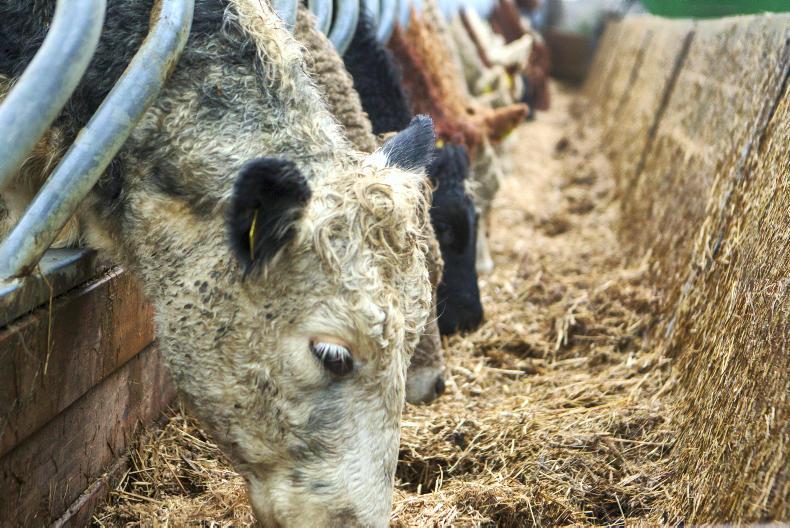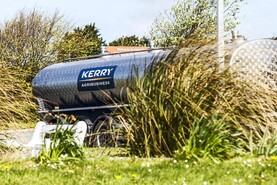James (Jim) Mills, with an address at Legacurry, Ballybay, Co Monaghan, and whose lawyers told the court last April that he is now living at Avenue Road, Lurgan, Co Armagh, had pleaded guilty to having the prohibited livestock fattening substance clenbuterol, more commonly known as ‘angel dust’, at his Legacurry premises on 21 July 2011, contrary to the European Communities (Animal Remedies) (No. 2) Regulations, 2007.
He also admitted being in possession of unauthorised equipment relating to diesel laundering at the same location on that date, contrary to Section 102 (3) (c) of the Finance Act 1999.
In passing sentence at Monaghan Circuit Criminal Court this Thursday, Judge Martin Nolan had described diesel laundering as a “social ill”, and also remarked that it was “for good reason” that clenbuterol was prohibited for use in livestock.
Defence
When evidence was heard in the case last week, Paul Greene SC, defending, had pointed to his client’s age and a cardiac condition (sentencing had actually been delayed for two days this week when the court was told that Mr Mills was admitted to a hospital in Craigavon with chest pains).
My client had been under some duress from a very particular type of criminal
Mr Greene had stated that his client had no previous convictions and was a reputable businessman, but had been under some “duress” from “a very particular type of criminal” with regard to having allowed his premises to be used for diesel laundering. He made no real profit from this enterprise, other than €300 per month in rent, counsel added.
Mr Frank Martin BL, prosecuting, told the court that the maximum sentence in relation to the fuel laundering charge was five years in prison and a €126,000 fine, or both. The sentence for using the clenbuterol could be three years’ imprisonment or a €500,000 fine.
Meat reputation vital
In giving his decision on Thursday 19 January, Judge Nolan remarked that the growth promoter referred to as angel dust had been banned for good reason. The reputation of the meat industry and agriculture in general was vital to the country, and the finding of clenbuterol in animals in this jurisdiction did no great service to that reputation.
While Department of Agriculture inspectors were on the farm, certain other items had aroused their suspicion
Two litres of the substance had been found, together with an empty container that had contained another litre, the judge noted, and he recalled being told that three millilitres made a single daily dose. That meant the quantity found was significant.
While the Department of Agriculture inspectors were on the farm of Mr Mills, certain other items had aroused their suspicion, and Customs and Excise officers were called. The result of this was that a diesel laundering plant, including tanks and associated equipment, had been found, Judge Nolan remarked.
Social ill
Describing diesel laundering as a “social ill’, the judge said it had many negative consequences, including the loss of revenues to the State, damage to people’s vehicles, and damage to the environment from a highly pollutant residue that was being “discharged willy-nilly” in rural areas close to the Border.
This type of crime was also difficult to detect, he commented.
The judge said it was highly unlikely Mr Mills would reoffend
In mitigation, the judge accepted that Mr Mills had cooperated, had no previous convictions and was a hard-working man. But he had made a grave error of judgement in these matters, and the question for the court now was whether a man of his age and health problems should serve a custodial sentence.
Stating that it was highly unlikely Mr Mills would reoffend, and that the sentence given would therefore be a punishment, and a deterrent to others, Judge Nolan said he felt a prison sentence was indeed merited.
He said he had thought about the matter, was taking account of the accused’s medical condition, but was nevertheless imposing an 18-month term of imprisonment on the diesel laundering charge.
For the clenbuterol offence, a sentence of one year was imposed, to run concurrently, which meant the term to be served was effectively 18 months.
Judge Nolan also acceded to an application from prosecutor Frank Martin to have a sum of €15,631 in cash that was found on the defendant’s estate forfeited to the State, on the basis that it was the proceeds of illegal activity.
Read more
Sentencing deferred in 2011 “angel dust” case
James (Jim) Mills, with an address at Legacurry, Ballybay, Co Monaghan, and whose lawyers told the court last April that he is now living at Avenue Road, Lurgan, Co Armagh, had pleaded guilty to having the prohibited livestock fattening substance clenbuterol, more commonly known as ‘angel dust’, at his Legacurry premises on 21 July 2011, contrary to the European Communities (Animal Remedies) (No. 2) Regulations, 2007.
He also admitted being in possession of unauthorised equipment relating to diesel laundering at the same location on that date, contrary to Section 102 (3) (c) of the Finance Act 1999.
In passing sentence at Monaghan Circuit Criminal Court this Thursday, Judge Martin Nolan had described diesel laundering as a “social ill”, and also remarked that it was “for good reason” that clenbuterol was prohibited for use in livestock.
Defence
When evidence was heard in the case last week, Paul Greene SC, defending, had pointed to his client’s age and a cardiac condition (sentencing had actually been delayed for two days this week when the court was told that Mr Mills was admitted to a hospital in Craigavon with chest pains).
My client had been under some duress from a very particular type of criminal
Mr Greene had stated that his client had no previous convictions and was a reputable businessman, but had been under some “duress” from “a very particular type of criminal” with regard to having allowed his premises to be used for diesel laundering. He made no real profit from this enterprise, other than €300 per month in rent, counsel added.
Mr Frank Martin BL, prosecuting, told the court that the maximum sentence in relation to the fuel laundering charge was five years in prison and a €126,000 fine, or both. The sentence for using the clenbuterol could be three years’ imprisonment or a €500,000 fine.
Meat reputation vital
In giving his decision on Thursday 19 January, Judge Nolan remarked that the growth promoter referred to as angel dust had been banned for good reason. The reputation of the meat industry and agriculture in general was vital to the country, and the finding of clenbuterol in animals in this jurisdiction did no great service to that reputation.
While Department of Agriculture inspectors were on the farm, certain other items had aroused their suspicion
Two litres of the substance had been found, together with an empty container that had contained another litre, the judge noted, and he recalled being told that three millilitres made a single daily dose. That meant the quantity found was significant.
While the Department of Agriculture inspectors were on the farm of Mr Mills, certain other items had aroused their suspicion, and Customs and Excise officers were called. The result of this was that a diesel laundering plant, including tanks and associated equipment, had been found, Judge Nolan remarked.
Social ill
Describing diesel laundering as a “social ill’, the judge said it had many negative consequences, including the loss of revenues to the State, damage to people’s vehicles, and damage to the environment from a highly pollutant residue that was being “discharged willy-nilly” in rural areas close to the Border.
This type of crime was also difficult to detect, he commented.
The judge said it was highly unlikely Mr Mills would reoffend
In mitigation, the judge accepted that Mr Mills had cooperated, had no previous convictions and was a hard-working man. But he had made a grave error of judgement in these matters, and the question for the court now was whether a man of his age and health problems should serve a custodial sentence.
Stating that it was highly unlikely Mr Mills would reoffend, and that the sentence given would therefore be a punishment, and a deterrent to others, Judge Nolan said he felt a prison sentence was indeed merited.
He said he had thought about the matter, was taking account of the accused’s medical condition, but was nevertheless imposing an 18-month term of imprisonment on the diesel laundering charge.
For the clenbuterol offence, a sentence of one year was imposed, to run concurrently, which meant the term to be served was effectively 18 months.
Judge Nolan also acceded to an application from prosecutor Frank Martin to have a sum of €15,631 in cash that was found on the defendant’s estate forfeited to the State, on the basis that it was the proceeds of illegal activity.
Read more
Sentencing deferred in 2011 “angel dust” case






 This is a subscriber-only article
This is a subscriber-only article










SHARING OPTIONS: